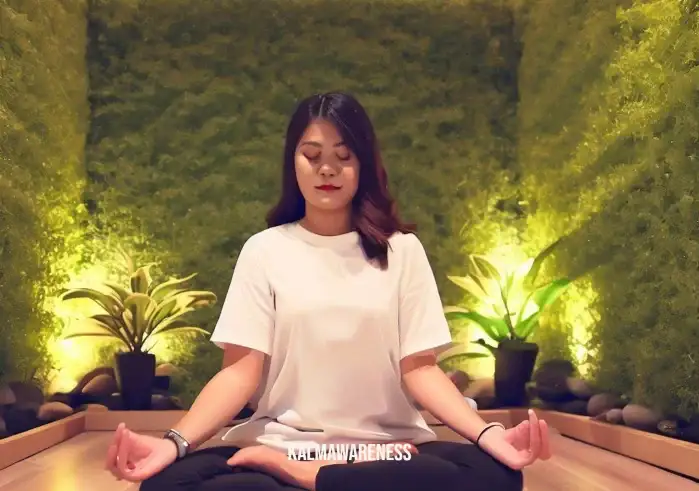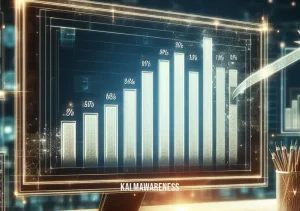Mastering Your Time: The Art of Prioritization and Productivity
The pursuit of productivity is often likened to a race against time. In this never-ending race, the finish line seems to keep extending beyond reach. How often have you wished for more hours in a day or a few extra days in a week? This constant battle with time can be overwhelming and draining. But what if you could control your time? What if time was on your side, working with you rather than against you? This is where the concept of yourtime comes into play.
Yourtime is all about personalizing your relationship with time, reshaping your perception of time from a fleeting resource to a manageable and valuable ally.
What is Yourtime?
Yourtime is a lifestyle that encourages individuals to prioritize their time according to their values, needs, and objectives. In As It Was in The Beginning, we explored the genesis of our relationship with time and how this relationship shapes our daily actions and decisions.
“The way we perceive time, the way we value it, and the way we use it, determines the quality of our lives.“
The concept of yourtime emphasizes the importance of personalization and individual perception. You should not have to conform to the standard 9-to-5 work routine if it does not suit your lifestyle or productivity peak hours. Instead, you should have the freedom to structure your day according to when you feel most active, engaged, and productive.
Balancing Priorities in Yourtime
Prioritizing tasks is a critical aspect of yourtime. It’s not merely about being busy, it’s about being productive. It’s the difference between Action vs Activity, where the former is purpose-driven and the latter is often a response to busyness.
“Action is the antidote to busyness. Busy people talk about how little time they have; action-oriented people show you how much they can achieve.“
A practical way to start implementing yourtime is by understanding and acknowledging your Time Scarcity. Once you accept that time is a finite resource, you can start strategizing how best to utilize it. You might also consider taking a Mindful Break to reassess your priorities and make informed decisions about where to invest your time.
One common misconception about yourtime is that it promotes a robotic, stringent adherence to schedules and plans. On the contrary, it encourages flexibility and adaptability. It’s about aligning your actions with your priorities without neglecting the need for downtime and relaxation. In fact, Letting Go of Parents’ Stuff serves as a great example of how breaking away from traditional time-management expectations can lead to a healthier relationship with time.
We invite you to continue to the next part of the article where we will delve deeper into the pillars of yourtime: mindfulness, personal growth, and efficiency. We will also explore the concept of ‘smart laziness’ and how it integrates into yourtime, fostering a balance between productivity and relaxation.

Maximizing Efficiency and Productivity in Yourtime
Implementing yourtime effectively calls for a detailed examination of your daily routines and habits, understanding your prime productive hours, and identifying tasks that could be delegated or automated. The objective is to maximize your productivity without compromising on your personal well-being or peace of mind.
Understanding and Implementing Smart Laziness
One seemingly counterintuitive concept that plays an integral role in managing yourtime is the concept of Smart Laziness. This is the art of doing more with less, which directly resonates with the principles of yourtime.
The philosophy of Smart Laziness is not about promoting lethargy or procrastination. Rather, it encourages using your mental and physical energy efficiently. This idea stems from the concept of Precrastination, which is the tendency to rush through tasks without careful consideration.
Key Points to Remember About Smart Laziness:
- Prioritize tasks based on their importance and urgency.
- Delegate tasks that can be performed by others.
- Automate repetitive tasks to free up your time for more productive activities.
- Take adequate breaks to avoid burnout.
- Make use of tools and resources that can streamline your workflow.
Mindfulness and Multitasking in Yourtime
A significant aspect of yourtime is mindfulness, which involves being completely present in the moment and aware of our thoughts and actions without getting overly reactive or overwhelmed. When we talk about Mindful Entrepreneurship and Mindful Leadership Coaching, the idea is to inculcate mindfulness in our work environments.
Yourtime encourages the practice of mindfulness as opposed to multitasking. Multitasking may seem like a productive approach, but research suggests that it might actually lead to mistakes, stress, and even burnout.
Comparing Mindfulness and Multitasking:
| Mindfulness | Multitasking | Yourtime Approach |
|---|---|---|
| Promotes focus on one task at a time | Encourages handling multiple tasks simultaneously | Mindful approach preferred |
| Enhances productivity and efficiency | Can lead to mistakes due to divided attention | Prioritize tasks and focus on them individually |
| Reduces stress and improves mental health | Can lead to stress and burnout | Incorporate mindfulness in daily routines |
| Encourages living in the present moment | Often results in living in a hurried and anxious state | Cultivate awareness and live in the present |
| Improves decision-making abilities | Decision-making might be impulsive and hurried | Make informed decisions with a calm and composed mind |
Remember, the key is to transition from a state of constant busyness to a state of mindful productivity.
The yourtime approach to Mindful Learning allows us to fully absorb and comprehend the information we come across, leading to a deeper understanding and better implementation. Moreover, utilizing tools like the Mindful Notebook can assist in maintaining focus and productivity throughout your day.
In the next part of this article, we will further explore the importance of personal growth in yourtime, and how the principles of yourtime can be applied to specific areas of life, such as relationships and personal well-being.

Yourtime: The Intersection of Personal Growth and Prioritization
Our perspective towards time and its management affects our personal growth directly. The process of managing yourtime isn’t only about productivity and efficiency, but it also encourages introspection and self-improvement. Let’s delve deeper into how yourtime aids in personal growth and prioritization.
Yourtime and Personal Growth
Personal growth forms a critical part of the yourtime ideology. It’s about improving oneself continuously, learning new skills, and deepening the understanding of oneself and the world. As Abraham Lincoln once said, “The best way to predict the future is to create it.”
Mindful Engineering is a yourtime concept that integrates mindfulness into our personal growth journey. By focusing our attention on the present moment, we become better equipped to make conscious decisions that shape our future. Furthermore, the principle of Mindful Agency encourages us to take charge of our lives and make decisions that are aligned with our personal growth goals.
With this understanding, the quote by Benjamin Franklin, “Lost time is never found again,” takes on a whole new meaning. Not maximizing our potential in the present is equivalent to losing our precious time.
Prioritization in Yourtime
Yourtime is about more than just being busy; it’s about being productive, and to be productive, we need to prioritize. The key is to understand the difference between Action vs Activity. An action propels us forward towards our goal, while an activity might keep us busy without necessarily moving us closer to our goal.
As Dwight D. Eisenhower once stated, “What is important is seldom urgent, and what is urgent is seldom important.” The Eisenhower Matrix, a popular time management tool, classifies tasks into four categories: Important and urgent, Important but not urgent, Urgent but not important, and Neither urgent nor important. It helps us focus on tasks that are important, aligning with our personal growth and long-term goals, rather than those that seem urgent but are not particularly important.
One of the core elements of prioritization is knowing when to say no. Just as Steve Jobs noted, “It’s only by saying no that you can concentrate on the things that are really important.”
Yourtime: A Journey of Self-Discovery
The beauty of yourtime lies in its inherent nature of facilitating self-discovery. As we practice Mindful Innovations and Mindful Planning, we learn more about ourselves – our strengths, weaknesses, passions, and fears. We become more attuned to our needs and are better positioned to chart our path towards personal growth and fulfillment.
Through the practice of yourtime, we come to understand that every moment is precious. As Buddha once said, “The trouble is, you think you have time.” But with yourtime, we learn to make the most out of every moment.
In the next part of this article, we’ll delve into how yourtime affects our relationships and helps in achieving a balanced lifestyle. We’ll also look at how it aids in building mindful spaces that foster productivity and peace.

Yourtime: Fostering Relationships and Lifestyle Balance
Embracing yourtime not only enhances personal growth and productivity but also cultivates healthier relationships and a balanced lifestyle. By mastering the art of time management, we can achieve more fulfilling personal and professional lives. Let’s explore how yourtime impacts these crucial aspects of our lives.
Yourtime and Relationships
In our pursuit of success and personal growth, relationships often take a back seat. However, human connection is a vital part of our wellbeing. Yourtime, therefore, encourages maintaining a balance between personal and professional commitments.
The principle of Mindful Spaces emphasizes creating an environment that nurtures both work and relationships. It encourages dedicating quality time to the people who matter most, exemplifying the saying, “Time spent with family is worth every second.”
This approach underscores the message of this post, which emphasizes the importance of allocating time to those who truly matter in our lives. Just as the saying goes, “Your time is the greatest gift you can give to someone.”
Yourtime and Balanced Lifestyle
Balancing work and personal life can feel like an impossible juggling act. However, with the principles of yourtime, we can cultivate a more harmonious lifestyle.
The concept of Mindful Entrepreneurship encapsulates this perfectly, emphasizing a balance between work, rest, and personal fulfillment. It advocates for regular Mindful Breaks to ensure we’re not overworking ourselves and ignoring our wellbeing.
Indeed, as Anne Wilson Schaef beautifully stated, “Life is a process. We are a process. The universe is a process.” Yourtime inspires us to embrace this process and find joy in the journey, not just the destination.
| Work-Life Balance | Time Spent with Loved Ones | Self-Improvement | |
|---|---|---|---|
| Time Management | Essential | High Priority | Mandatory |
| Yourtime Approach | Encouraged | Emphasized | Integral |
| Outcome | Balanced Lifestyle | Meaningful Relationships | Personal Growth |
| Potential Risk | Burnout | Neglect | Stagnation |
| Solution | Mindful Breaks | Mindful Spaces | Mindful Learning |
As we delve deeper into the journey of yourtime, let’s remember the words of Earl Nightingale, “Never give up on a dream just because of the time it will take to accomplish it. The time will pass anyway.”
In the upcoming section, we’ll delve into how yourtime can help in dealing with stress, anxiety, and the concept of time scarcity. We’ll discuss how it empowers us to overcome these challenges and live a more fulfilling life.
Remember, as Harvey Mackay once said, “Time is free, but it’s priceless. You can’t own it, but you can use it. You can’t keep it, but you can spend it. Once you’ve lost it, you can never get it back.” With yourtime, let’s make every second count.

Yourtime: Dealing with Stress and Anxiety
Yourtime’s philosophy extends well beyond productivity and lifestyle balance, reaching into the realm of mental wellbeing. Let’s explore how embracing yourtime can help alleviate stress and anxiety, key barriers to achieving our full potential.
The Burden of Time Scarcity
The modern world thrives on a culture of busyness – we’re constantly chasing deadlines, juggling multiple tasks, and feeling perpetually behind. This feeling of time scarcity can lead to heightened stress and anxiety. But, yourtime encourages a shift in perspective.
Rather than being bound by time, yourtime posits we’re empowered by it. This article explores this concept further, highlighting that the thought, “I don’t have enough time” is indeed an example of a limiting belief.
Mindful Action over Mindless Activity
Often, we mistake busyness for productivity. However, action is not always equivalent to activity. Yourtime encourages intentional actions that contribute to our goals, rather than mindless activities that drain our energy.
The concept of Smart Laziness fits perfectly here, encouraging efficiency over sheer effort. As Bill Gates famously said, “I choose a lazy person to do a hard job. Because a lazy person will find an easy way to do it.”
Mindfulness: A Powerful Tool
Yourtime advocates mindfulness as a potent tool to combat stress and anxiety. Mindful Learning fosters a focus on the present moment, rather than ruminating on the past or worrying about the future.
Additionally, Mindful Planning ensures we’re setting realistic expectations and schedules for ourselves, reducing the likelihood of feeling overwhelmed.
As Jon Kabat-Zinn professed, “Mindfulness is a way of befriending ourselves and our experience.”
Cultivating the Mindful Lifestyle
With yourtime, we can navigate the high-paced, demanding modern world with a calm and focused mind. Here’s a blueprint to cultivate a mindful lifestyle:
- Identify your priorities: Set clear goals and objectives.
- Intentional actions: Emphasize quality action over sheer activity.
- Regular breaks: Integrate Mindful Breaks into your routine to avoid burnout.
- Mindful Planning: Set realistic expectations and schedules to minimize stress.
- Presence: Stay grounded in the present moment.
In conclusion, yourtime equips us to tackle stress and anxiety, fostering mental wellbeing and personal growth. As Lao Tzu declared, “Time is a created thing. To say ‘I don’t have time,’ is like saying, ‘I don’t want to.'”
In the following section, we will further delve into the transformative power of yourtime, exploring its impact on our personal growth and lifelong learning. Remember, as Carl Sandburg said, “Time is the coin of your life. It is the only coin you have, and only you can determine how it will be spent.” Let’s spend it wisely with yourtime.

Yourtime: A Lifelong Journey of Growth and Learning
Yourtime isn’t just a momentary lifestyle choice, but a lifelong journey of personal growth and self-discovery. It guides us towards living more intentionally, cultivating mental wellbeing, and carving out a life that resonates with our truest selves.
Embracing Mindful Entrepreneurship
Our professional lives play a huge role in shaping our overall lifestyle. Embracing yourtime principles within our work can lead to meaningful growth and productivity. Mindful entrepreneurship embodies this philosophy.
Entrepreneurs who are conscious of their time and prioritize mental wellness over mindless hustle tend to experience greater success. They value their time, utilize it effectively, and understand the importance of balance. As Stephen Covey said, “The key is in not spending time, but in investing it.”
Nurturing Mindful Relationships
The way we spend our time directly impacts our relationships. Those who are often ‘busy’ may find it challenging to maintain healthy connections. This insightful post discusses this further.
With yourtime, we are encouraged to prioritize meaningful relationships over fleeting distractions. Mindful presence in our interactions fosters deeper connections. As John Lennon beautifully expressed, “Time you enjoy wasting, was not wasted.”
Mindful Agency and Empowerment
By embracing yourtime, we’re stepping into our power and assuming agency over our lives. This article discusses how mindfulness fuels empowerment. It shifts us from a reactive state to a proactive one, guiding us towards more intentional actions and choices.
As Thich Nhat Hanh affirmed, “The present moment is filled with joy and happiness. If you are attentive, you will see it.”
The Gift of Time
In this world of constant motion and noise, yourtime gifts us with the luxury of silence, of space, of being. It’s an invitation to take a breath, slow down, and truly experience life in all its richness.
As highlighted in this beautiful piece, “I’ve been looking in the mirror for so long”, we need to take time to truly understand and appreciate ourselves.
Your Journey with Yourtime
Yourtime isn’t a destination, but a journey. A journey of embracing presence over rush, depth over surface, and quality over quantity. It’s about learning to live your life on your terms, where every minute is a rose, as explored in this piece.
Let this final quote from Abraham Lincoln guide you: “The best thing about the future is that it comes one day at a time.” With yourtime, each day is a gift, a new opportunity to live more consciously, joyously, and meaningfully.
As we wrap up this comprehensive exploration of yourtime, we invite you to continue delving into the wide array of content and resources we offer at Kalm Awareness. Embark on this journey towards a more mindful, balanced, and joyful life – because, after all, it’s your time.




